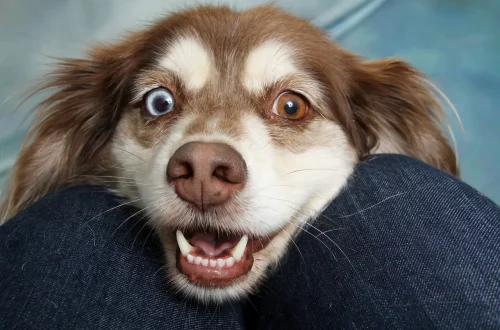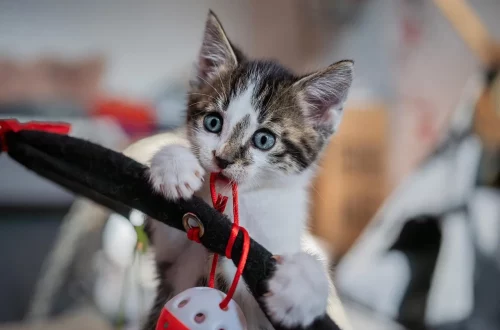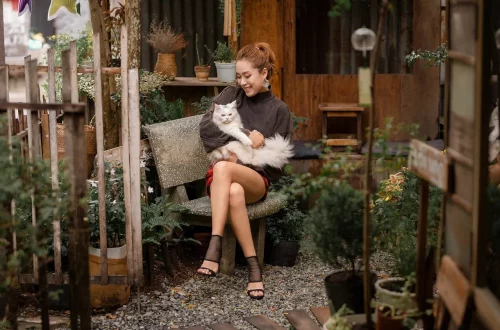
How to Handle It When Your Dog Peed on the Couch
Dealing with a pet can be a joyful yet challenging experience, especially when it comes to their unexpected accidents. One of the most common and distressing situations pet owners face is when their beloved dog pees on the couch. This incident can evoke feelings of frustration and confusion, leaving many wondering how to address the issue effectively. Understanding that dogs, like humans, can have accidents for various reasons—from excitement and stress to medical issues—can help owners approach the situation with a compassionate mindset.
Moreover, it’s essential to remember that dogs do not intend to misbehave; their actions are often a reflection of their needs or emotions. This realization can make it easier to find practical solutions rather than resorting to anger or punishment, which can be counterproductive. By creating a supportive environment for your dog and implementing strategies to prevent future accidents, you can maintain a harmonious household while ensuring your furry friend feels safe and loved.
Now let’s explore effective methods for handling the situation when your dog has an accident on the couch.
Immediate Steps to Take After the Accident
When discovering that your dog has peed on the couch, the first reaction may be one of shock or frustration. However, responding appropriately in the moment is crucial to mitigate damage and prevent future incidents.
The first step is to remain calm. Dogs are sensitive to their owner’s emotions, and reacting with anger or frustration can create anxiety for your pet. Instead, approach the situation with a level head. Quickly but gently remove your dog from the area to prevent further accidents.
Next, address the mess. Start by blotting the affected area with paper towels or a clean cloth to absorb as much liquid as possible. Avoid rubbing, as this can push the urine deeper into the fabric. Once you have blotted the area, it’s time to clean it properly. Use an enzymatic cleaner specifically designed for pet stains. These cleaners break down the proteins in urine, eliminating odors that could encourage your dog to revisit the spot.
Spray the cleaner generously on the stained area and let it sit for the recommended time on the label. This waiting period is essential for the enzymes to work effectively. Afterward, blot the area again until it is dry. If the scent persists, repeat the cleaning process to ensure complete odor removal.
Finally, once the area is clean and dry, monitor your dog closely. Understanding the reason behind the accident is vital for preventing future occurrences. Is your dog experiencing any changes in behavior? Have there been recent stressors in their environment? Take note of any changes that could have contributed to the incident.
Understanding the Reasons Behind the Behavior
To prevent future accidents, it’s essential to understand why your dog may have chosen the couch as their bathroom. Dogs can have accidents for a variety of reasons, including medical issues, behavioral problems, or environmental stressors.
One common reason is urinary tract infections (UTIs), which can lead to increased urgency and frequency of urination. If your dog is peeing inappropriately and showing signs of discomfort, it’s crucial to consult a veterinarian. They can rule out any underlying health conditions that may be contributing to the behavior.
Another reason dogs may urinate indoors is anxiety or stress. Changes in the household, such as the arrival of a new pet, a move, or even changes in your schedule, can trigger stress responses in dogs. If you suspect that anxiety is the cause, consider creating a more stable environment for your dog. This might involve establishing a routine for feeding, walks, and playtime, as consistency can help alleviate anxiety.
Additionally, excitement urination is a common behavior in younger dogs. If your dog tends to urinate when excited, such as during greetings or playtime, it’s important to manage these interactions. Encourage calm greetings and avoid overwhelming your dog with excitement, as this can help minimize accidents.
Lastly, inadequate potty training can lead to accidents. If your dog is still learning where it’s appropriate to relieve itself, be patient and consistent with training. Regular potty breaks and positive reinforcement when your dog goes outside can significantly improve their understanding of acceptable behaviors.
Preventive Measures to Avoid Future Incidents
Once you’ve addressed the immediate situation and gained insight into your dog’s behavior, it’s time to implement preventive measures. Taking proactive steps can significantly reduce the likelihood of future accidents on your couch or other areas of your home.
One effective strategy is to establish a consistent potty schedule. Take your dog outside at regular intervals, especially after meals, playtime, or waking up from a nap. By creating a routine, you help your dog learn when and where it is appropriate to relieve itself. Be sure to praise and reward your pet when they go outside, reinforcing positive behavior.
Additionally, consider the use of training pads. If you live in an apartment or have limited access to outdoor spaces, training pads can provide a reliable alternative for your dog. Place the pads in a designated area where your dog feels comfortable and encourage them to use it when necessary.
Another preventive measure is to limit your dog’s access to the couch, especially if they have a history of accidents. You might use baby gates or keep the couch covered with a protective blanket that can be easily washed. This not only protects your furniture but also reinforces the idea that the couch is not a bathroom.
Lastly, addressing any potential stressors in your dog’s environment can go a long way in preventing accidents. Provide a safe space where your dog can retreat when feeling anxious, and consider engaging in activities that promote relaxation, such as training exercises or calming music.
How to Reinforce Good Behavior
Reinforcing good behavior is key to ensuring that your dog understands where it is appropriate to relieve itself. Positive reinforcement techniques can effectively teach your dog acceptable behaviors while strengthening the bond between you and your pet.
Start by praising your dog immediately after they relieve themselves outside. Use a cheerful tone and provide treats to reinforce the behavior. This positive association will help your dog connect the act of going outside with rewards, making them more likely to repeat the behavior.
Additionally, consider incorporating training sessions focused on commands like “go potty” or “outside.” Use these commands consistently, and reward your dog when they comply. Over time, your dog will learn to associate the command with the action, making it easier to communicate their needs.
Consistency is crucial. Ensure that all family members understand the training approach and reinforce the same behaviors. Mixed signals can confuse your dog and hinder their learning process.
Furthermore, be patient. Behavioral changes take time, and accidents will happen occasionally, especially during the training phase. Celebrate small victories and remain encouraging throughout the process.
Finally, monitor your dog’s progress and make adjustments to your training technique as needed. If you notice persistent issues or an increase in accidents, it may be beneficial to consult a professional dog trainer or behaviorist for additional guidance.
In conclusion, handling the situation when your dog pees on the couch requires a thoughtful and patient approach. By addressing the immediate mess, understanding the underlying reasons, implementing preventive measures, and reinforcing good behavior, you can create a positive environment for both you and your dog.
**Disclaimer**: This article is not intended as medical advice. If you suspect a health issue with your pet, please consult a veterinarian.




